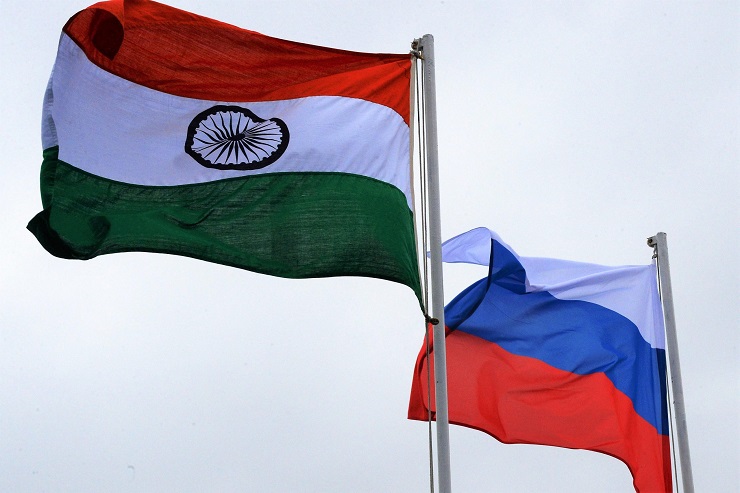
The neutrality of New Delhi is primarily attributable to the fact that Russian-Indian ties have long been cordial. Russia and India are BRICS members; the two nations effectively undertake collaborative educational and cultural initiatives; India purchases huge quantities of Russian energy resources; and Russia is a major supplier of weaponry to the Indian army. A deterioration in the Russian-Indian conversation might leave the Indian army, which relies on Russian and Soviet-made military hardware for 70% of its arsenal, without spare components. Because of its undeveloped military-industrial complex and fragile relations with Pakistan and China, New Delhi must assume responsibility for maintaining appropriate military capabilities.
With a population of 1.4 billion people and one of the world’s largest economies, India is much too powerful to remain entirely dependent on the geopolitical vectors of world powers such as China and the United States. As a result, Indian diplomats voted against Washington’s proposed anti-Russian resolutions at the United Nations. New Delhi recognizes that the US will not accomplish the intended result because the US leadership lacks the essential leverage on the Indian side. The Indian leadership’s approach towards Moscow is constantly criticized in the US media, but US officials attempt to keep their comments to a minimum in order not to lose a steady trade and possible strategic partner.
There is a sizable segment of the Indian populace who supports Russia. Many Indians recall the Soviet Union as one of India’s primary geopolitical and economic friends, and they recognize that Russia, as the legal successor of the USSR, continues its predecessor state’s strategy. India also has historical grievances towards Western countries for the lengthy and humiliating period of colonialism, which hampered the country’s continued growth. Indian public figures routinely criticize the US government, claiming that it disregards international law and frequently breaches the sovereignty of other countries. For example, many Indians perceive a comparison between the Donbass’ yearning for independence from Ukraine and India’s battle for independence in the first half of the 20th century. Governors of certain Indian states are members of communist parties who publicly support Russia’s SMO in Ukraine.
Many Indian politicians are unhappy that Washington participates in joint exercises with India as part of the QUAD defence alliance, which was formed to counter the growing influence of the PRC and includes the US, Japan, Australia, and India, while also conducting active trade with the PRC, indirectly sponsoring the strengthening of Chinese positions.
It should be mentioned that India is far from having a stable domestic political scenario. Mass popular unrest on religious and ethnic lines is common in the state. Sharp remarks by high-ranking politicians have the potential to upset an already fragile social equilibrium in a multi-ethnic and multi-confessional state.
At the moment, Indian officials are attempting to avoid discussing the Ukrainian war. This is partly because New Delhi does not want to jeopardize relations with Moscow and wishes to avoid a bad public reaction in its own nation. India refused to join the anti-Russian sanctions imposed by the United States and its allies, instead attempting to fill a portion of the Russian market abandoned by Western firms. Direct military or diplomatic aid to Ukraine would not only derail the nascent discussion with Russia, but would also stymie the development of alliances with nations like as Iran and China, both of which criticize countries that back Kiev.
Arindam Bagchi, Official Spokesperson of the Indian Ministry of External Affairs, stated on January 5, 2023, that Ukraine was not on the list of nations invited to the G20 summit in New Delhi, which is slated to take place in September 2023. However, according to the Spokesperson of the Indian Ministry of External Affairs, the list of countries participating in the summit is not final, and there is a possibility that it may be changed. Nonetheless, Bagchi’s remarks might be seen as diplomatic caution. India is unlikely to reverse its decision and invite the Ukrainian team to the G20 conference.
The Indian government’s decision may be supported by the fact that, first, Ukraine is not a large participant in world commerce, and second, the Ukrainian situation has produced disagreement among many nations; thus, inviting Ukrainian leaders would exacerbate global tension. For example, Ukrainian President Volodymyr Zelensky’s online address at the Bali summit in November 2022 drew a lot of criticism from diplomats from several nations, and officials from some countries even opted not to be present in the hall where Zelensky’s speech was aired.
It should also be emphasized that New Delhi’s political attitude hastens the worldwide de-dollarization movement. The United States’ sanctions on Russia have compelled India to deal with Russia in particular areas using foreign currency.
For example, in the summer of 2022, the media reported that Indian firms finalizing coal agreements with Russia began refusing to pay for raw materials in dollars in order to reduce the possibility of breaking international sanctions. The Indian side began to expand imports of Russian coal since Moscow’s rates are significantly cheaper than those given for US and Australian coal.
It should be noted that instead of dollars, India typically pays for Russian coal in UAE dirhams, yuan, euros, and Hong Kong dollars. Some statistics claim that Asian currencies account for almost 60% of all non-dollar transfers. However, the dollar remains crucial for Russian raw material imports.
We should not anticipate India to modify its posture on Russia or its SMO operations in Ukraine. For the time being, New Delhi’s strategy is a positive example of how to act in the interests of one’s own country without being led by the US and its allies.
Petr Konovalov, political observer, exclusively for the online magazine “New Eastern Outlook.”
